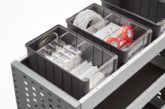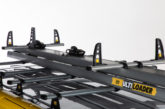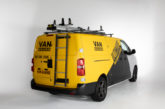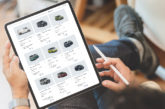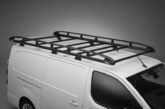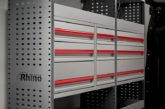
Are sky-high fuel bills hurting your business? Dan Powell from Honest John Vans shares his top money-saving fuel tips.
Check your tyres
You should check the condition of your tyres at least once a week. If the tyres are under-inflated they will create more rolling resistance and this will force the engine to work harder and use more fuel. The correct tyre pressures will be listed in your van’s owner’s manual and also on a sticker or plate on the vehicle – usually inside the driver’s door frame.
If your tyres are worn and in need of replacement then consider replacing them for a model that has a high-efficiency rating. All tyres are scored from A to G for fuel economy. And you could save money in the long run by spending a little more on a set of tyres with a good fuel economy rating.
Get your van serviced
On the face of it, skipping or delaying your van’s annual service may look like a quick money-saving idea. But in reality, it will increase your van’s wear and tear, while also making it less fuel-efficient.
A dirty or clogged up fuel or air filter will hurt your van’s fuel economy because it will reduce engine efficiency and force the vehicle to use more diesel. That’s why you should have your van serviced every 12 months. And always insist on a full oil and filter change as dirty or old oil can also make your van’s engine less efficient.
Streamline your van
Heavy vans use more fuel, so it pays to take a weekly stocktake of what’s in the back of your van to see what you do/don’t need. Even cutting weight by a small amount will improve your van’s mpg, which will produce long term savings over the year.
Roof racks, pipe carriers and ladder racks will all increase your van’s thirst for fuel. Why? Because they create resistance against the air that flows over the tip of the vehicle, thus forcing the engine to work harder. If you don’t need the items bolted to the roof of your van then consider removing them until you do need them again.
Don’t run low on fuel
It can be tempting to avoid filling up when the price of fuel is high but it’s another example of a false economy. If you drive with a near-empty tank you risk clogging the fuel filters – or worse. If the van has drawn in air instead of fuel at any time then both the pump and injectors could be damaged.
If you travel short distances then consider filling the tank halfway, as a full load of fuel will add weight and increase fuel consumption.
Shop smarter
It’s never been easier to compare local fuel prices. Many sat navs will do this for you or you can search online, which means you can find the supermarket or independent fuel station with the lowest costs. It may also pay to find a fuel station that operates a loyalty card scheme, which will give you money off your next fill or something small like a free coffee.


